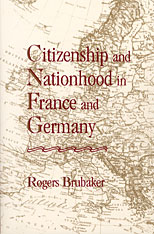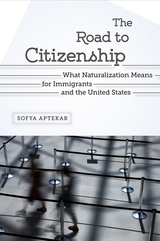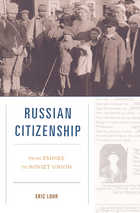

2013 — NACCS Book Award – National Association for Chicana and Chicano Studies
During the nineteenth and early twentieth centuries, a majority of the Mexican immigrant population in the United States resided in Texas, making the state a flashpoint in debates over whether to deny naturalization rights. As Texas federal courts grappled with the issue, policies pertaining to Mexican immigrants came to reflect evolving political ideologies on both sides of the border.
Drawing on unprecedented historical analysis of state archives, U.S. Congressional records, and other sources of overlooked data, Naturalizing Mexican Immigrants provides a rich understanding of the realities and rhetoric that have led to present-day immigration controversies. Martha Menchaca's groundbreaking research examines such facets as U.S.-Mexico relations following the U.S. Civil War and the schisms created by Mexican abolitionists; the anti-immigration stance that marked many suffragist appeals; the effects of the Spanish American War; distinctions made for mestizo, Afromexicano, and Native American populations; the erosion of means for U.S. citizens to legalize their relatives; and the ways in which U.S. corporations have caused the political conditions that stimulated emigration from Mexico.
The first historical study of its kind, Naturalizing Mexican Immigrants delivers a clear-eyed view of provocative issues.


Russian Citizenship is the first book to trace the Russian state’s citizenship policy throughout its history. Focusing on the period from the mid-nineteenth century to the consolidation of Stalin’s power in the 1930s, Eric Lohr considers whom the state counted among its citizens and whom it took pains to exclude. His research reveals that the Russian attitude toward citizenship was less xenophobic and isolationist and more similar to European attitudes than has been previously thought—until the drive toward autarky after 1914 eventually sealed the state off and set it apart.
Drawing on untapped sources in the Russian police and foreign affairs archives, Lohr’s research is grounded in case studies of immigration, emigration, naturalization, and loss of citizenship among individuals and groups, including Jews, Muslims, Germans, and other minority populations. Lohr explores how reform of citizenship laws in the 1860s encouraged foreigners to immigrate and conduct business in Russia. For the next half century, citizenship policy was driven by attempts to modernize Russia through intensifying its interaction with the outside world. But growing suspicion toward non-Russian minorities, particularly Jews, led to a reversal of this openness during the First World War and to a Soviet regime that deprived whole categories of inhabitants of their citizenship rights.
Lohr sees these Soviet policies as dramatically divergent from longstanding Russian traditions and suggests that in order to understand the citizenship dilemmas Russia faces today—including how to manage an influx of Chinese laborers in Siberia—we must return to pre-Stalin history.
READERS
Browse our collection.
PUBLISHERS
See BiblioVault's publisher services.
STUDENT SERVICES
Files for college accessibility offices.
UChicago Accessibility Resources
home | accessibility | search | about | contact us
BiblioVault ® 2001 - 2024
The University of Chicago Press









